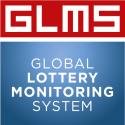Deciphering the New Regulation of Remote Sports Betting and Gaming in Peru: the Initial Overview
Discover how the recent regulation of remote sports betting and gaming in Peru is transforming the industry, challenging operators to adapt to international standards and promoting responsible gaming.

by Sergio Poves Vidal , legal assistant manager of La Tinka.
Buenos Aires (February 19, 2024) — The publication of the regulations of Law No. 31557 generated a turning point in the remote sports betting and gaming industry in Peru. Operators, upon becoming aware of this new regulation, faced the challenge of deciphering and understanding a series of technical and legal aspects that were new to the national market. The regulation brought with it a level of detail and complexity unprecedented in the Peruvian market. From implementing advanced technological systems to adopting responsible gaming protocols and anti-money laundering measures, operators are being forced to re-evaluate and modify their business practices and strategies.
Adaptation to international standards
One of the main complexities was that much of the regulations incorporated standards and practices compiled from international jurisdictions with greater maturity in the regulation of these activities, such as Colombia and the United Kingdom. This international approach presents a double edge: on the one hand, it seeks to raise the level of Peruvian regulation to the global standard, but on the other, it poses challenges of adaptation and understanding for local operators, who find themselves navigating in relatively unknown territory.
Initiative and dialogue in the online betting and gaming sector
Faced with the complexity and new demands posed by the regulations of Law No. 31557, important operators in the Peruvian market such as La Tinka, and the Peruvian Sports Betting Association (APADELA) assumed a proactive stance. This attitude was not only manifested in an effort to understand and adapt to the new legislation, but also in seeking direct and effective communication with the regulatory entity.
In clear recognition of the challenges presented by the new regulations, these entities have been sending formal consultations to the Ministry of Foreign Trade and Tourism (MINCETUR), marking the beginning of a constructive dialogue. These consultations, which are currently being reviewed by MINCETUR, represent a significant step towards clarifying and improving the regulation.
These consultations not only seek to clear up doubts but also offer proposals for improvements. La Tinka and APADELA, aware of the importance of a regulatory framework that promotes responsible gambling, emphasized in their communications the need for regulation to effectively fulfill its primary purpose: to protect the health of citizens against possible problems such as pathological gambling. . This scenario was not limited to the first days or weeks after the publication of the regulations; It is a continuous process that extends to the present. Operators are constantly seeking to clarify doubts, correctly interpret the provisions and, above all, ensure that they are in full compliance not only in letter but in spirit with the regulatory framework. This task has become an integral part of their daily functioning, involving a constant commitment to learning and adaptation.
MINCETUR has demonstrated commitment to the continuous improvement of regulation, taking into consideration the contributions of the main players in the industry. The review of the proposals presented by La Tinka and APADELA is a testament to their willingness to adapt and perfect the regulatory framework in response to the needs and realities of the sector.
Focus on responsible gaming
This emphasis on responsible gambling highlights a critical aspect of regulation: beyond regulating for the sake of regulation, it is essential that regulations in this industry are aligned with clear objectives of consumer protection and prevention of gambling addiction. The contributions of operators such as La Tinka and members of APADELA highlight the relevance of incorporating the vision and experience of sector actors in the regulatory process.
Initial conclusions
The beginning of the regulatory path in Peru has demonstrated the complexity inherent in the task of balancing international standards with local realities. The active response of operators reflects an industry committed not only to compliance with the law but also to the well-being of its consumers and the integrity of the sector. As operators adapt and align with new regulations, a safer and more responsible environment is emerging for gaming and betting fans. The process of deciphering and understanding the new legislation is not only a legal requirement, but also a step towards consolidating a more ethical and sustainable sector in Peru.
SOURCE: Cibelae
Tags: Cibelae, Peru, New Regulation of Remote Sports Betting and Gaming

























